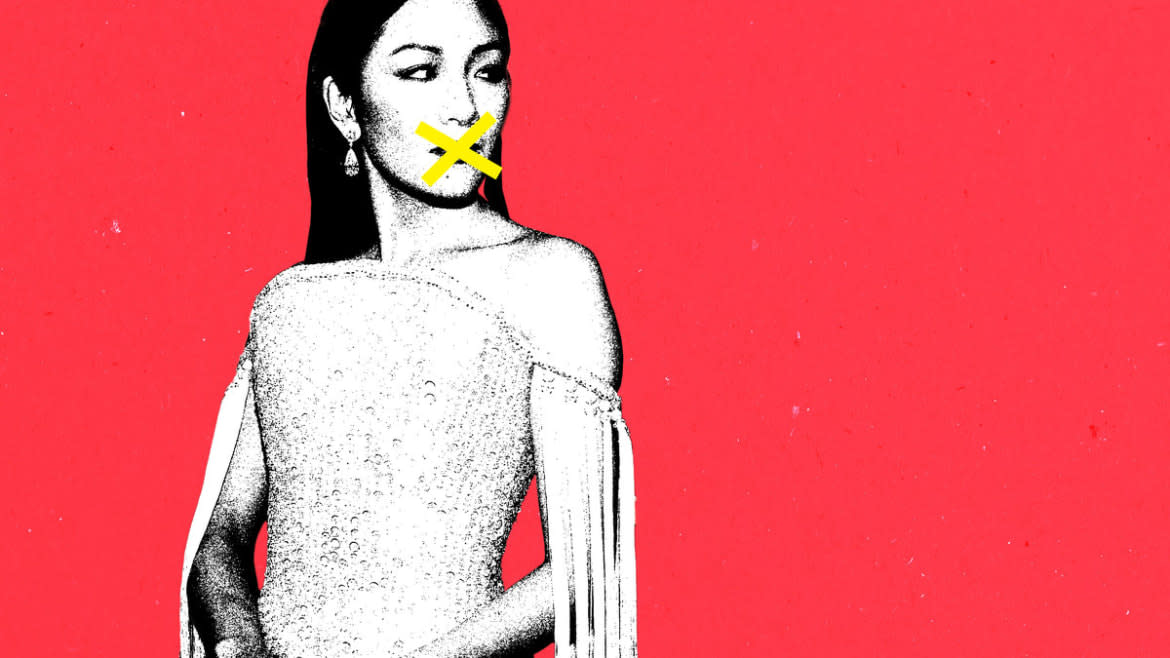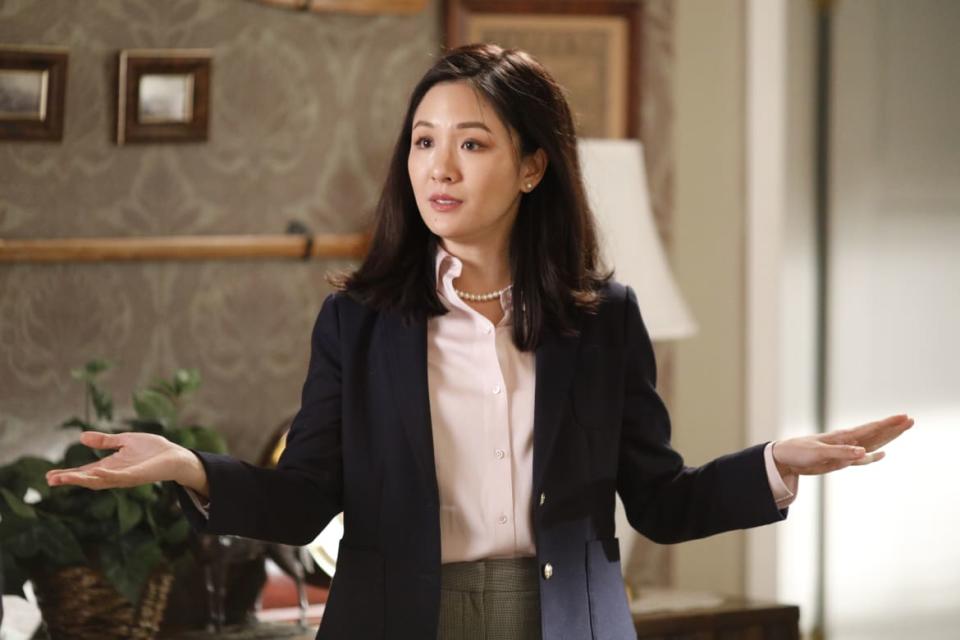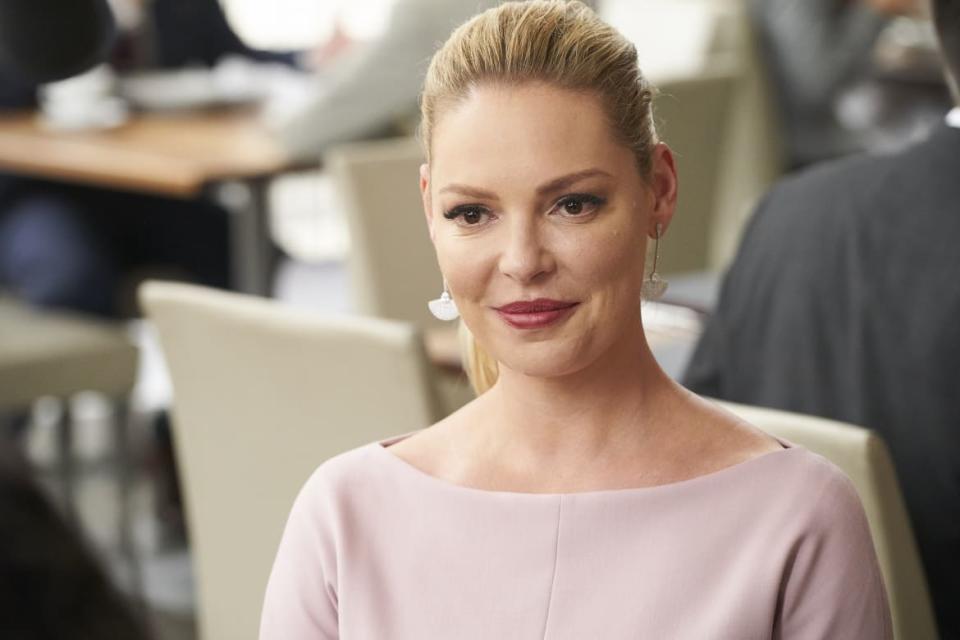Did Constance Wu Get ‘Canceled’ for Being ‘Ungrateful’?

- Oops!Something went wrong.Please try again later.
- Oops!Something went wrong.Please try again later.
- Oops!Something went wrong.Please try again later.
- Oops!Something went wrong.Please try again later.
- Oops!Something went wrong.Please try again later.
In 2019, Fresh Off the Boat star Constance Wu confused the TV-watching public by bemoaning her ABC show’s renewal. “So upset right now that I’m literally crying,” she tweeted. “Fuck.” When someone congratulated her on the “great news” of her show’s continuation, the reason for Wu’s complaints became undeniable. “No,” she responded, “it’s not.”
Complaining about one’s show getting renewed while countless peers in the industry wait to learn their own fates is not exactly a good look. But the backlash grew intense enough to chase Wu off social media, in spite of the actress’s same-day apology.
It took nearly three years for Wu to log back on. On Thursday, as Wu announced her upcoming memoir Making a Scene, she marked her return to Twitter with a personal note: The online backlash she’d received in 2019 was so severe that she attempted suicide.

Constance Wu in a 2019 episode of Fresh Off the Boat.
“I felt awful about what I’d said, and when a few DMs from a fellow Asian actress told me I’d become a blight on the Asian American community, I started feeling like I didn’t even deserve to live anymore,” Wu wrote. “That I was a disgrace to AsAms, and they’d be better off without me.”
Wu’s statement has prompted a discussion of how her PR nightmare turned into a relentless pile-on. Post-Framing Britney Spears, reconsiderations like these—about how the media and the public have unfairly humiliated [insert female celebrity here] en masse over some relatively minor infraction—have become something of a ritual. Did we really “cancel” Constance Wu just for being… ungrateful?
— Constance Wu (@ConstanceWu) July 14, 2022
Wu issued an apology for her Fresh Off the Boat tweets the evening after she posted them (after a brief attempt at deflection). She was “temporarily upset,” she wrote in a statement at the time, “not because I hate the show but because its renewal meant I had to give up another project that I was really passionate about.”
Still, by the time Wu’s Crazy Rich Asians co-star Gemma Chan “liked” a tweet from journalist Yashar Ali saying the actress “has a reputation for being rude, petty, mean-spirited, and ungrateful,” Wu’s new public image had already fallen into place. Never mind that the trope of the “difficult” actress is rooted in misogynistic attitudes about women’s value in Hollywood, or that the women who bear the moniker so often receive a public re-evaluation, as it so often does; the rumor was sufficient, and the narrative took flight.
It didn’t help that Wu’s statement called her Fresh Off the Boat job “fun and easy and pleasant” as opposed to “challenging,” like the role she’d wanted to pursue instead—words that struck some as condescending. The perception became that Wu had decided she was “too good” for TV after starring in Crazy Rich Asians and Hustlers. This was despite the fact that the role she’d coveted was not even a glamorous film gig, she said, but a “not Asian-specific” part in a play that would have paid her scale.
Although the circumstances were different, the backlash Wu received felt somewhat reminiscent of Katherine Heigl’s malaise following some ill-received comments about Grey’s Anatomy and Knocked Up. The actress’ once-meteoric rise came to a screeching halt in 2008: That January, Heigl dared to call Knocked Up—the movie that “made her a big-screen star,” as Vanity Fair put it at the time—“a little sexist,” and in June, she revealed that she had not submitted herself for the Emmy awards because she felt the material she’d received that season on Grey’s Anatomy was not up to snuff. (Cue a humiliating battle with hallucinatory cancer and some ghost sex, and so long, Izzie Stevens!)

Katherine Heigl watched her career suffer after criticizing Knocked Up.
Heigl’s fall from the industry’s good graces was not the first of its kind. Throughout history, “ungrateful” women in Hollywood have been punished for speaking their minds. They get written off of shows whose titles bear their own names, like Valerie Harper did when she clashed with producers over a requested pay raise; her character died in a sudden car crash, and Valerie’s Family became The Hogan Family. Janet Hubert got edged out of The Fresh Prince of Bel-Air following tensions with her co-star, a floppy-eared Will Smith.
Hollywood’s inconsistent treatment of male and female stars is as undeniable as its gender pay gap. Women can get blackballed in Hollywood because their co-stars on one production didn’t like them; meanwhile, their male counterparts, particularly white men, can openly discuss “pranking” their co-stars with dead rats, used condoms, and boxes of bullets and still continue to line up high-profile gigs. Just ask Jared Leto, who responded to criticism of his on-set antics by saying, “I’m an artist at the end of the day ... If I do something risky and you don’t like it, basically, you can kiss my ass.”
Compare the backlash Wu has received with, say, the amusement audiences have consistently felt toward Robert Pattinson’s (extremely funny) jokes about making Twilight. As some pointed out on Twitter, the actor relentlessly mocked the material even while he was working on it, and we’ve continued to love him for it. You think Wu was being rude and condescending? Just remember that when asked which of his colleagues made his Twilight experience the most rewarding, Pattinson shouted out his favorite sheet masks instead.
Robert Pattinson hating his job became a meme and Constance Wu not wanting to continue a character made her a subject of bullying
Lit! https://t.co/uY0rHSYQFF— Janesh Rahlan (@janeshrahlan) July 14, 2022
I say this not to denigrate my lord and pasta-sandwich-inventing savior—never change, R-Patz!—but to illustrate how an expectation “gratitude” is often used to disempower women in an industry that often refuses to recognize their worth to begin with.
There are, of course, exceptions to every rule. Ellen Pompeo, for instance, has amassed enough clout as an actress and producer on Grey’s Anatomy to make a running joke out of her desire to leave. But the stigma compounds for women of color, who too often are encouraged to take what they can get and be thankful they’re not playing, say, a gossipy manicurist.
In her statement Thursday, Wu wrote that the Fresh Off the Boat Twitter debacle taught her the importance of prioritizing mental health, as well as how vital it is to reach out to people going through tough times. She described her upcoming book as unflattering at times, and seemed to hint that she’s been working on whatever behavior got her labeled “petty” and “rude.”
Hollywood Is Finally Learning to Laugh at How Horrible It Is
“That’s why I wrote my book and why I’m here today—to reach out and help people talk about the uncomfortable stuff in order to understand it, reckon with it, and open pathways to healing,” Wu wrote. “If we want to be seen, really seen… we need to let all of ourselves be seen, including the parts we’re scared of or ashamed of—parts that, however imperfect, require care and attention. And we need to stop beating each other (and ourselves) up when we do.”
“After a little break from Hollywood and a lot of therapy, I feel ok enough to venture back on here (at least for a little bit),” Wu wrote. “And even though I’m scared, I’ve decided that I owe it to the me-of-3-years-ago to be brave and share my story so that it might help someone with theirs.”
It took considerable bravery for Wu to return to social media and share how this internet firestorm (and, specifically, the insinuation that she was somehow not properly representing her race because of some tone-deaf tweets) nearly ended her life. But one act of courage won’t demolish what generations of stigma have built. If we’re really invested in preventing the apology tours of the future, eventually we as a society are going to have to learn when it’s time to take a quick breath and log off.
Get the Daily Beast's biggest scoops and scandals delivered right to your inbox. Sign up now.
Stay informed and gain unlimited access to the Daily Beast's unmatched reporting. Subscribe now.

